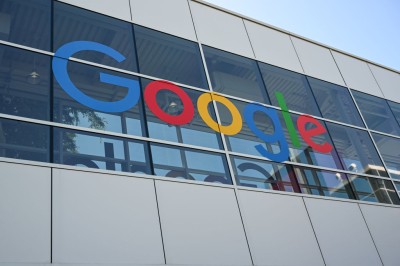Introduction: The Departure of Paul Greco
In a recent turn of events, Google has lost another key player in its augmented reality (AR) division. Paul Greco, a vice president of engineering at Google, has left the company for a new opportunity, according to sources familiar with the matter1. Greco, formerly the chief technology officer of Magic Leap, joined Google in 2021 and initially worked on Project Starline. He later led the hardware efforts on Iris, Google’s ill-fated smart glasses project12. Greco’s departure adds to a string of notable exits from across Google’s AR teams, including Eddie Chung and Mark Lucovsky, both of whom were leads on Iris2.
The Demise of Iris and Google’s Shift in Focus

Iris, Google’s smart glasses project, was shut down last year as the company decided to shift its focus towards a new partnership with Samsung for a mixed-reality headset, codenamed Moohan1. This decision was influenced by Samsung’s request to keep other AR teams at Google from accessing the Moohan technology2. Despite the setback, Google still believes in the future of AR glasses but plans to take a more Android-like approach. Instead of building glasses itself, Google is developing a software operating system to license to hardware partners2.
Google’s Search for a Partner
While Google is actively working on its software platform for AR glasses, it is also on the lookout for a partner to collaborate with. The company aims to showcase its various prototypes and find a partner that shares its vision and excitement for AR glasses. Google is particularly interested in the upcoming CES technology trade show in Las Vegas as an opportunity to woo potential partners2.
The Role of Raxium in Google’s AR Efforts
To strengthen its AR capabilities, Google acquired AR display company Raxium in 2022. Greco’s team, which was firewalled from other AR efforts, was tasked with developing products using Raxium’s technology2. However, it remains unclear how far the team progressed before Greco’s departure1.
Qualcomm’s Chip and the Future of Google-Samsung Collaboration
Qualcomm recently announced a new chip that it claims Google and Samsung plan to use in their devices, including Moohan2. This chip could potentially enhance the performance and capabilities of Google’s AR glasses. While Samsung is currently working on its own mixed-reality headset, there is a possibility that they might choose to collaborate with Google on AR glasses as well. In such a scenario, an exclusive deal between the two companies could be on the table2.
Conclusion
Google’s continued efforts in the augmented reality space have faced significant challenges, including the departure of key executives and the discontinuation of projects like Iris. However, the company remains optimistic about the future of AR glasses and is actively seeking partnerships to bring its vision to life. With the acquisition of Raxium and the potential collaboration with Samsung, Google aims to develop a robust software platform and create innovative AR experiences for users around the world2.
References
Footnotes
